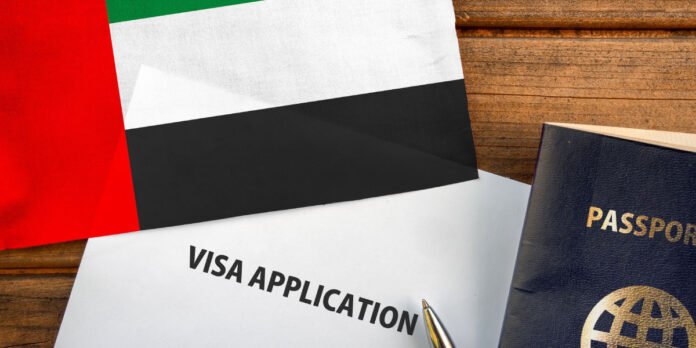A New Era For Tourism, Business, And Bilateral Ties
In a groundbreaking move set to redefine travel for millions of Indian passport holders, the United Arab Emirates has broadened its visa‐on‐arrival facility by adding six new eligible countries. Effective from February 13, 2025, Indian nationals holding a valid visa, residence permit, or green card from Australia, Canada, Japan, New Zealand, Singapore, and South Korea can now secure an entry visa upon arrival at UAE ports of entry. This strategic expansion not only streamlines travel procedures but also reinforces the UAE’s commitment to bolstering tourism and business ties with India.
Key Highlights Of The Policy Expansion
New Eligibility Criteria:
Previously available only to Indian nationals with approved documents from the United States, the United Kingdom, and European Union member states, the visa on arrival benefit now extends to holders of valid permits from six additional advanced countries.
Simplified Documentation:
Eligible travelers need only ensure their Indian passport is valid for at least six months from the date of entry and present the required documentation from one of the newly added countries.
Flexible Visa Options:
The visa on arrival is issued with a standard 14-day validity at a fee of AED 100, extendable for an additional 14 days for AED 250. Options for a 60-day visa are also available, catering to both short visits and extended stays.
Simplified Arrival Procedure At UAE Ports
At key UAE airports like Dubai International, Abu Dhabi International, and other approved points of access, the new facility greatly streamlines access. Instead of going through protracted pre-application processes, qualified Indian citizens can now get a visa on arrival by just showing their current valid documentation and paying the relevant cost.
The Federal Authority for Identity, Citizenship, Customs, and Port Security (ICP) Director General, Major General Suhail Saeed Al Khaili, highlighted that this policy change demonstrates the UAE’s progressive stance on facilitating international travel. “We want to provide a flawless travel experience that supports not only tourism but also closer economic and cultural ties between India and the UAE,” he said.
Social And Financial Implications
Advancement Of Local Industry And Travel
The UAE’s tourism industry should benefit greatly from the legislative reform. India has long been one of the main sources of tourists to the UAE; so, by lowering administrative obstacles, the new step is expected to increase the visitor count even more. Higher expenditure in the hotel, retail, and transportation sectors—all of which help the local economy—is probably driven by increasing visitor arrivals.
Improving Business Connection
Simple travel policies also open the path for more corporate connectivity. Now free from the bother of pre-visa applications, Indian professionals and businesspeople can create last-minute travel plans and show up for crucial meetings. This is expected to then stimulate more bilateral trade and investment possibilities between the two countries.
Advantages For The Diaspora Indians
This news is much welcomed by the sizable Indian diaspora living overseas. The simplified approach reduces time spent on administrative chores, enabling more natural travel possibilities—for work, vacation, or family reunions.
Expert Reactions And Industry Forecast
Industry analysts have praised the development as a winback program. Airlines and travel agents already saw a spike in bookings as the streamlined process lowers the stress and delays once connected with overseas travel.
One of the top travel industry analysts said, “This action changes everything. It streamlines last-minute travel schedules and increases the appeal of the UAE to Indian business travelers and visitors.
Historical Context And Future Possibilities
Changing UAE Visa Policies
Historically, obtaining UAE visas presented major difficulties for Indian nationals, sometimes requiring extended waiting times and considerable documentation. The UAE has gradually relaxed these criteria over years in response to rising Indian visitor and resident counts. Reflecting the UAE’s will to remain a competitive global travel destination, this current policy change builds on past improvements.
Digital Processing And Technological Integration
Looking ahead, the UAE government will probably keep improving its visa rules by including digital technologies into the application process. The UAE is laying the groundwork for a user-friendly, quick immigration experience that might be a model for other countries with possible future improvements like mobile app-based tracking for visa applications and totally digitalized processing processes.
Conclusion
For India as well as the UAE, the expansion of the visa-on-arrival system for Indian nationals is a turning point. The UAE not only streamlines travel for millions of Indian passport holders but also boosts bilateral ties, supports economic growth, and improves the general travel experience by adding six more qualified nations. The UAE’s reputation as a top worldwide tourism destination is likely to fly to new heights as Indian citizens with valid documents from Australia, Canada, Japan, New Zealand, Singapore, and South Korea now enjoy simpler access to the UAE. This change in policy emphasizes UAE’s commitment to innovation and worldwide connection as well as the changing dynamics of international mobility.


